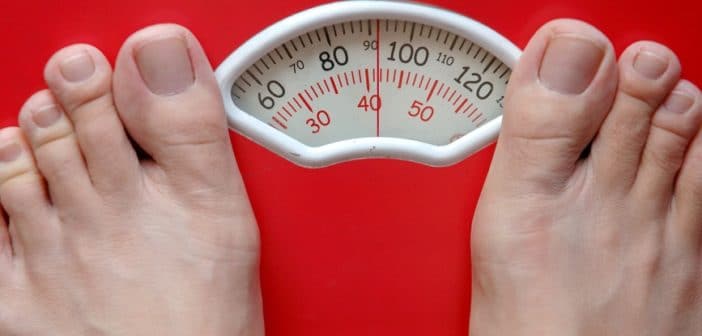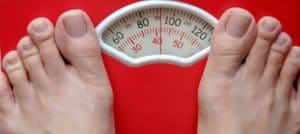This post was originally published on May 15, 2014.
I wake up and for two seconds I’m okay and then there’s this sense of impending doom. I can’t quite explain it other than to say that nothing is outwardly wrong. I’m employed, the rent is paid, my girlfriend loves me, I’m not strung out on drugs and my health is fine. There’s nothing stressful scheduled in my immediate future and yesterday was a pretty good day—in fact I was actually very happy—so I can’t really justify why I feel this way. But then there I am in the bathroom brushing my teeth when a mantra starts chanting in my head: “You’re fat. You’re ugly. You’re stupid. You’re a loser. Nobody loves you. ”
In the vernacular of therapists, rehabs and 12-step programs, I’m a quadruple winner. Not only do I have addiction issues, an eating disorder and a learning disability but I also suffer from depression and all those combined make for some pretty serious low self-esteem. But that doesn’t necessarily explain the continued one-sided conversation in my head. Admittedly there’s a very opinionated person up in there. But the reality is it’s only me judging myself very harshly. I wouldn’t let anyone else speak to me the way I allow this internal dialogue to, nor would I ever talk to anyone else in this manner.
As a child I picked up all kinds of skewed judgmental values. My mother was constantly dieting and always talked degradingly of those that were overweight. Yet I was a little chunky as a kid and when my parents brought me to Sears to buy clothes I shopped in the “husky” section—which we all knew, no matter how you spelled it, meant fat. This led to eating being somewhat shameful. It was something I had to be civilized about in public, but when I was in the privacy of my own home my emotions prevailed and it was time to shove gross amounts of snack foods down my throat until I was sick. All of my heroes and role models were skinny rock stars who were strung-out junkies and alcoholics and they were the ones I eventually learned to emulate. Being skinny and doing drugs went hand in hand. Puking up food and starving myself were just precursors before (and after) the storm of drug addiction.
Added to these issues was another—that I couldn’t spell and had trouble reading. While it turns out that I had an undiagnosed learning disability, I felt stupid—especially because my dad’s a university professor and even at the age of 10, I’d compare myself to him. Then, just to put a little more icing on the “stupid” cake, one teacher told my parents in front of me, “You know, he just isn’t that smart.” And that’s when I thought, “Okay, finally I have an answer—I’m a dumbass.”
At about this time, my parents split up. My dad just disappeared. My mom fell deep into a depression—a depression that’s hereditary, the same one I inherited—and she was so self-absorbed and miserable that she had no time for her children, least of all me. All of a sudden, I felt like an unwanted stupid fat kid. Bingo, value system complete.
I understand that since this is the story I’ve been telling myself all my life, it’s no wonder that when the seemingly simple solution of drugs arrived, I jumped on it and stayed on it way past that still working. At first drugs stopped the internal negative dialogue—or at least they made it irrelevant. I wasn’t fat anymore. I had the company of heroin so I wasn’t alone and didn’t need love. I was no longer depressed. I had become my heroes.
Of course eventually it all came crashing down. The inevitable consequences couldn’t be outweighed. My life was a disaster and I quit using. And from that day on, I was back at square one dealing with everything I had sought to escape. Yet now I’d added on years of really bad behavior and a ton of resentments: my negative self body image was kicking the shit out of me, I was depressed, my self esteem was pretty much non-existent and I couldn’t even imagine who could love me because I couldn’t love myself. Hell, I was more of a mess then when I started.
At this point most people would probably say, “There are medications for depression—why don’t you try one?” Actually I was on antidepressants for like um, forever. They helped me immeasurably when I first got off drugs—helped with the body dysmorphia, the depression, the anxiety, the…well, you name it. But then I gained a ton of weight, my sex drive screeched to a halt, my feelings were numb and I isolated, not seeming to care if I was in a relationship or had friends. And really none of that was acceptable collateral damage. In the end I made the decision to stop taking them. I told myself that I didn’t get clean just to be on another drug, even if this one was prescribed. But the reality was I couldn’t deal with the weight gain and no sex.
Now by no means am I advocating that everyone should toss out their Prozac so they can join me in being a bundle of nerves. But what I have learned in recovery is that it’s a process. And if I am finally getting it together by working on myself, then I need to keep evolving in my own consciousness. Unfortunately this process takes time; it doesn’t all happen instantly. So here I am 13 years later, not so much still craving drugs but rather dealing with my core issues that were my original problems way back before I ever started using.
Luckily I don’t begin every day like this. Some days are just harder then others. But nothing is as bad as being strung out with no hope. Now instead of suppressing my feelings, I’m forced to live with them and that’s made me a stronger person. I no longer avoid uncomfortable situations. I confront my fears. I strive to not create more damage in my life by not cheating, stealing, or manipulating those around me. I have people that I care about and they care about me. I have a sponsor and a support group and when I don’t have solutions for what I’m going through, I call others seeking help.
Standing at the sink, I put down the toothbrush and stare at my reflection in the mirror. I think: You’re not fat. You’re not ugly. You’re not stupid. You’re not a loser. People love you.
Even though I feel incredibly lame doing this. I repeat it over and over. Suddenly I’m reminded of that old Saturday Night Live skit with Stuart Smalley saying, “I’m good enough. I’m smart enough, and doggonit, people like me!” And I laugh, embarrassed that I may be imitating him. But right now I’d rather try something that might help than stay in my pain and misery. Even though this feels awkward and a little too touchy feely, I put aside my fears and continue because what I’m telling myself today is the truth.
Sponsored DISCLAIMER: This is a paid advertisement for California Behavioral Health, LLC, a CA licensed substance abuse treatment provider and not a service provided by The Fix. Calls to this number are answered by CBH, free and without obligation to the consumer. No one who answers the call receives a fee based upon the consumer’s choice to enter treatment. For additional info on other treatment providers and options visit www.samhsa.gov.





